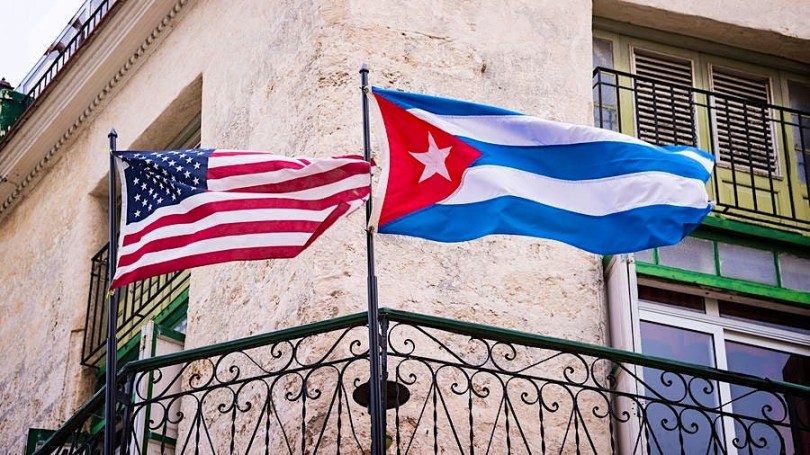 Photo courtesy of cigaraficionado.com
Photo courtesy of cigaraficionado.com
“The list is a unilateral designation by the United States government towards countries that the State Department deems to be supporting international terrorism.”
By Rolf Niederstrasser, Political analyst – Havana Times
HAVANA TIMES – In late January, the Alliance for Cuba Engagement and Respect (ACERE) urged President Biden in a letter to remove Cuba from the list of countries that sponsor terrorism after a U.S. delegation met with Cuban officials to resume talks on law enforcement issues. The organization stated that the Caribbean nation was placed on the list for political reasons rather than pose a real threat to national security.
While Cuba, an impoverished nation with a fleeing population, can appear harmless to an economic and military superpower like the United States, looks can deceive. Havana’s real threat is unconventional: Cuba continues to recruit students and professors in American universities as spies, urging them to obtain government positions, steal, and resell state secrets to US enemies, while actively sponsoring terrorism around the world. In addition to behaving as an information broker, they subvert democratic institutions in Latin America through cultural populism, polarizing societies, bringing authoritarian left-wing governments to power, and destabilizing relations with the United States.
Once a Soviet vessel that waged proxy wars and covert operations aiding leftist movements in Africa, Latin America, and the Middle East, the collapse of the Soviet Union marked the inevitable economic collapse of Cuba due to its reliance on Soviet imports and the mismanagement of the economy. The Intelligence Directorate agents, or DI in its Spanish initials, were once Soviet KGB-trained officials and enforced many of their operations in Latin America, becoming an effective ideological and economic tool for Cuba after the collapse of the Eastern bloc. Unlike the CIA or European agencies that operate with big budgets and technological capabilities, Cuban spy networks have instead relied on forging alliances throughout the world to advance the goal of what they call their “struggle against US imperialism.” It includes recruiting people in academia, the arts, religious leaders, celebrities, armed rebels and extremist organizations, and politicians.
The creation of the São Paulo Forum in 1990 by Fidel Castro, together with a young Lula Da Silva, attracted radical left-wing parties, aspirants, and leaders, taught them how to subvert their population, create social polarization, and rise to power. Still today, with recurring Pink Tides in the region, the Cuban regime has regained a lifeline of influence and economic aid from sympathizing governments. At the same time, they have continuously pushed the failed agenda of “Socialism of the 21st Century,” a Marxist revisionist ideology that intends to solve structural issues in Latin America like poverty, inequality, and gender issues, but finalized in the crackdown of democratic institutions all over Latin America and compromised US relationships with governments and interests in the hemisphere.
Additionally, the São Paulo Forum has not only maintained ties with terrorist and drug trafficking groups. Cuba also harbors rogue factions of FARC, which walked out of the peace negotiations with the Colombian government, two members of the armed Basque terrorist group ETA of Spain, ELN leaders responsible for the 2019 bombings in Colombia’s capital that killed two dozen people and injured many more, and US fugitives of the FBIs Most Wanted Terrorists List that have escaped prosecution for murder and terrorist attacks like Assata Shakur and Víctor Manuel Gerena.
Article continues here: State Sponsors of Terrorism